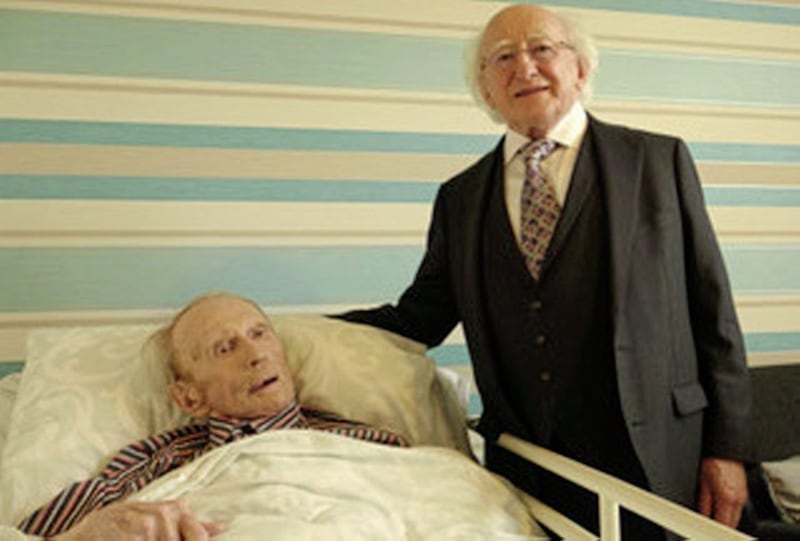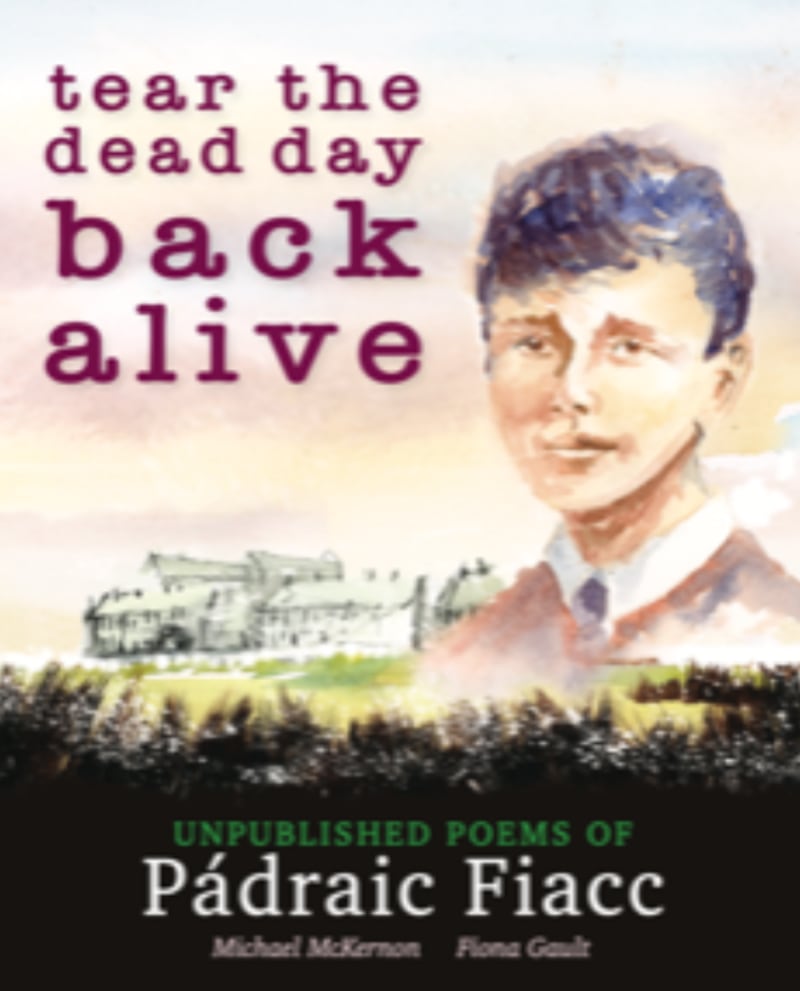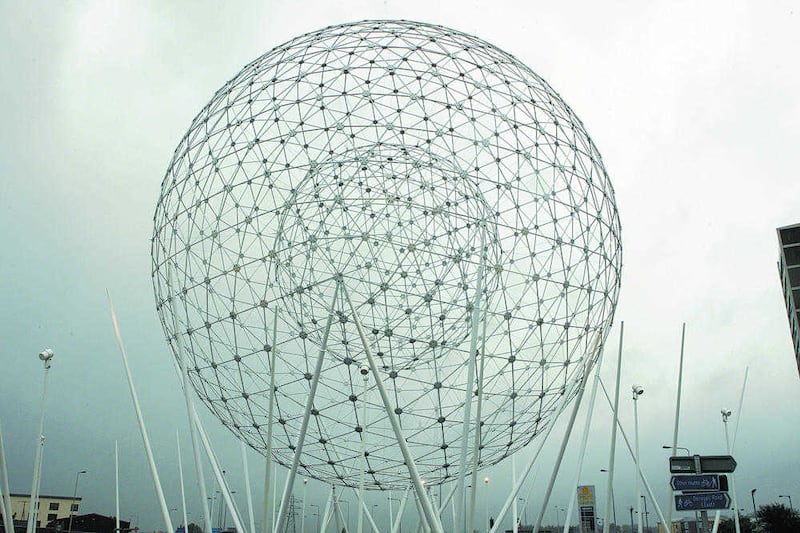One of the north’s most visceral poets, Pádraic Fiacc is to be celebrated with a series of events marking the centenary of his birth and his often overlooked contribution to Ireland’s literary canon.
April 15 marks 100 years since the writer was born in the Lower Falls area of west Belfast, and he would go on to become the most cutting chroniclers of the Troubles, whose unflinching verse on the brutality of the conflict stood in stark contrast to the work of his more acclaimed peers.
Fiacc, who died at a south Belfast care facility in 2019 at the age of 94, had previously enjoyed literary success in the mid 20th century in the US, where he had first moved with his family at the age of 5.
He grew up in New York’s then-infamous Hell’s Kitchen neighbourhood, before eventually settling again in Glengormley, outside north Belfast in 1956.

Despite a prodigious output of verse, Fiacc remained mostly outside of literary circles for the remainder of his life, with his work often judged as too raw for mainstream success.
1977s ‘Elegy For A Fenian Get’ as an example, is a brutal take on the killing of nine-year-old Patrick Rooney at Belfast’s Divis Flats in 1969.
Patrick, who was struck by a bullet from a machine gun mounted on an RUC vehicle, became the first child to die in the Troubles, and Fiacc’s uncompromising poem is written from the perspective of a sectarian bigot defending the killing.
Another poem even describes, in shocking and bloody detail, the torture and murder of a Catholic by loyalist paramilitaries.
Fiacc’s hard-edged writing, jagged as bomb shrapnel, is streets away from the more reserved verse of contempraries who also tackled the Troubles in their work. This divergence from the accepted norm left Fiacc - who is said to have referred to peers as ‘pee-the-bed poets’ - as an unapologetic literary rebel during his peak writing years.
He did, however, receive recognition in 1981 with membership of the Irish creative arts association Aosdána, and in his home city was celebrated in 2012 with a special reception at Belfast City Hall.

Days before his death, the poet received a visit from President Michael D Higgins, who praised the Belfast native’s “outstanding originality” and his writing’s “honest confrontation with truth”.
Now, more than five years after his passing, Fiacc’s legacy will be remembered and brought to new audiences with the Fiacc 100 programme of events, which kicks off with an event at Belfast City Hall on Monday, days ahead of the release of a new volume of his previously unpublished poems.
The book, Tear the Dead Day Back Alive, is co-edited by artist Michael McKernon, who became a friend of Fiacc in his later years, and who is championing the poet’s work with the new tome along with organising the series of events to re-ignite interest in one of Belfast’s most undervalued literary icons.
“Padraig wrote the biggest body of poetry about the Troubles, yet he is rarely mentioned when people speak of Ireland’s best loved poets,” he told the Irish News.
“We hope that this new celebration of his life and work will introduce a new generation to his incredible poetry, not just here in Belfast, but to audiences across Ireland and beyond.”

Tear the Dead Day Back Alive, which is also co-edited by Fiona Gault, will be officially launched at Belfast Castle on April 18.
Next month also sees the publication of Turas Filíochta, a collection of Fiacc’s poems translated into Irish for the first time.
Fiacc 100 events continue into the summer months, including the launch of an exhibition of art related to his work at the Public Record Office of Northern Ireland in June, while outside of Belfast they include receptions in Armagh, Co Donegal, and Co Cork.
“This special year is focused on the reconsideration of the poet’s cultural impact and influence,” the programme description states.
“In particular, Fiacc’s tenacious vulnerability and willingness to transgress boundaries of acceptability in the name of greater inclusivity.”








